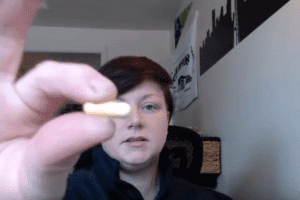
Pfizer Influenced Neurontin Studies It has been known that Neurontin is associated with a significant—80 percent, accoring to a prior LA Times report—increase in suicidal ideation and actions. Now, Reuters, is reporting that internal Pfizer Inc. documents point to the drug maker having “altered or omitted unfavorable study findings to expand its epilepsy drug, Neurontin’s, […]

Pfizer Influenced Neurontin Studies It has been known that Neurontin is associated with a significant—80 percent, accoring to a prior LA Times report—increase in suicidal ideation and actions. Now, Reuters, is reporting that internal Pfizer Inc. documents point to the drug maker having “altered or omitted unfavorable study findings to expand its epilepsy drug, Neurontin’s, market,” citing U.S. researchers looking into how drug manufacturers massage research data.
Pfizer is considered, said Reuters, the world’s largest drug maker.
The research found that although clinical trials respond to a specific scientific question, when looking at Pfizer documents and published studies on Neurontin for nonepilepsy conditions, it seems that nearly half—eight of 20—of the studies did not receive medical journal publication, said Reuters.
Also, eight of 12 studies that were published, were published with a significant change: Pfizer changed The main scientific question.
“There were a lot of primary outcomes that were shifted around between the planning of the protocol and the reporting of the study,” said Kay Dickersin of Johns Hopkins University in Baltimore, quoted Reuters. Dickersin’s study appears in the New England Journal of Medicine.
“Some primary outcomes were lost altogether. Some were brand new. Some were secondary outcomes that were upgraded to primary,” Dickersin said in a telephone interview with Reuters.
The drug giant funded all of the studies and all showed how Neurontin worked off-label for migraines or pain. Once approved, any drug can be prescribed off-label; however, drug makers are not permitted to market medications for off-label uses and can only tout drugs for Food & Drug Administration (FDA)-approved uses, explained Reuters.
Interestingly, drug companies can distribute study reprints from medical journals; of note given the change in focus in a number of such pieces made by Pfizer.
In 2004, Pfizer paid a whopping $430 million to settle a lawsuit over how it illegally promoted Neurontin and was sued last year for off-label marketing, neglecting to release negative study results, and changing the focus of trials to present more favorable outcomes, said Reuters.
The 2004 charges stemmed from a federal whistleblower lawsuit that claimed Neurontin marketing was promoting off-label uses, including the treatment of pain and bipolar disorder.
The FDA approved Neurontin in 1983 to treat partial complex seizures. The drug quickly became a blockbuster; by 2004, sales reached $3 billion annually. Neurontin was made by Parke-Davis, a division of Warner-Lambert, which was acquired by Pfizer in 2000.
The family of Susan Bulger filed the first Neurontin suicide lawsuit; Bulger (39) took the drug before hanging herself in 2004. The lawsuit alleged the company hid the drug’s suicide risks. The plaintiffs’ case focused on last December’s decision by the FDA to order all makers of epilepsy drugs to add a suicide-risk warning to their label.
As we reported at the time, the new warnings resulted from the FDA’s review of 199 clinical trials of 11 anti-epileptic drugs which showed that patients receiving anti=epileptic drugs had a nearly two-fold risk of suicidal behavior or thoughts (0.43 percent) compared to patients receiving a placebo (0.24 percent).
This difference was about one additional case of suicidal thoughts or behaviors for every 500 patients treated with anti-epileptic drugs instead of placebo, the agency said.
The personal injury attorneys at Parker Waichman LLP offer free, no-obligation case evaluations.
For more information, fill out our online contact form or call 1-800-YOURLAWYER (1-800-968-7529).


